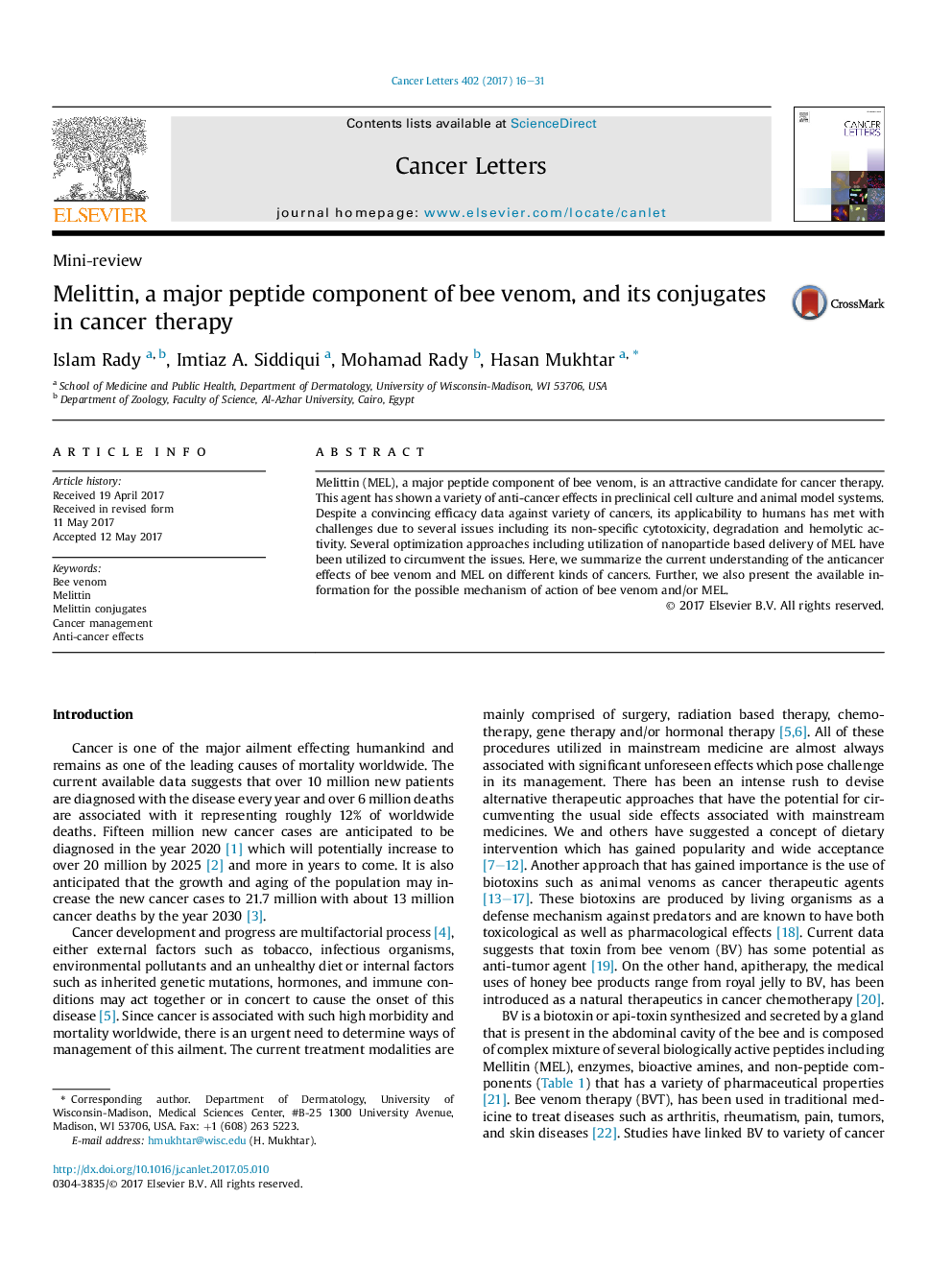| Article ID | Journal | Published Year | Pages | File Type |
|---|---|---|---|---|
| 5525212 | Cancer Letters | 2017 | 16 Pages |
â¢Alternative techniques for cancer management might have some advantages over the current treatment modalities.â¢Bee venom therapy has been used in traditional medicine to treat several diseases including pain, tumors and skin diseases.â¢Bee venom and its individual constituent Melittin has demonstrated efficacy in variety of preclinical models of human cancers.
Melittin (MEL), a major peptide component of bee venom, is an attractive candidate for cancer therapy. This agent has shown a variety of anti-cancer effects in preclinical cell culture and animal model systems. Despite a convincing efficacy data against variety of cancers, its applicability to humans has met with challenges due to several issues including its non-specific cytotoxicity, degradation and hemolytic activity. Several optimization approaches including utilization of nanoparticle based delivery of MEL have been utilized to circumvent the issues. Here, we summarize the current understanding of the anticancer effects of bee venom and MEL on different kinds of cancers. Further, we also present the available information for the possible mechanism of action of bee venom and/or MEL.
Graphical abstractDownload high-res image (233KB)Download full-size image
